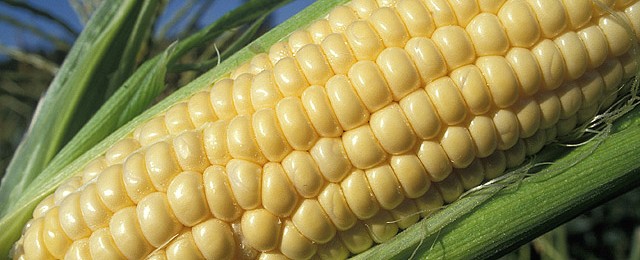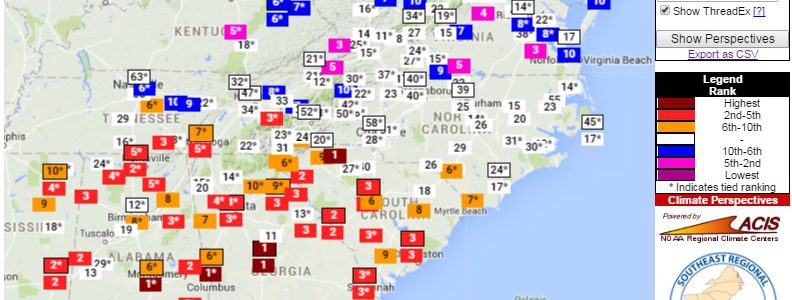Climate and Ag in the news
-

Earlier this week Jonathan Belles at the WunderBlog discussed whether having the record earliest “D” tropical storm in the Atlantic Ocean predicted what the activity would be for the rest of the season. You can watch a video and read about it here. Based on his statistics, seasons that are active early don’t really indicate…
-

The Packer reported this week that the sweet corn season is winding down in Georgia, just about at the average time for ending the harvest here. They noted that Georgia corn yields are expected to be lighter than usual due to heavy rains in some areas, which could lead to reduced supplies going into the…
-

MountainXpress has an interesting story this week about the tremendous flood that affected western North Carolina, and Asheville in particular, in mid-July 1916. According to their story, “the tail end of a hurricane, coming close on the heels of another one, had dumped 22 inches of rain on Western North Carolina in 24 hours, inundating…
-

WNCN.com, a CBS affiliate in North Carolina, reported this week that the cold snap that affected North Carolina in late April has effectively destroyed the blueberry crop at some farms in their state. The Whitted Bowers Farm in Orange County reported that they have lost $21,000 due to the freezing temperatures, leaving them little crop left…
-

Water vapor and carbon dioxide are both contributors to greenhouse warming on the Earth. I’ve gotten questions from time to time about their relative importance to greenhouse warming. Dr. Marshall Shepherd of UGA provides a good discussion of the topic in a recent Forbes.com blog post here.
-

Extremely hot conditions have brought a spate of record high temperatures to some parts of the country, including a few records set in the Southeast late last week. This does not look like it will change any time soon, unfortunately. You can read more about the heat in the Southwest and what to do to keep yourself…
Posted in: Climate and Ag in the news -

Earthzine published an interesting article earlier this month about the decrease in wind speeds that have occurred in recent years compared to the longer-term average. You can read it at https://earthzine.org/2016/06/10/a-new-kind-of-drought-u-s-record-low-windiness-in-2015/. This is important because of our increasing use of wind power to provide electricity, since lower wind speeds are less efficient for power production and…